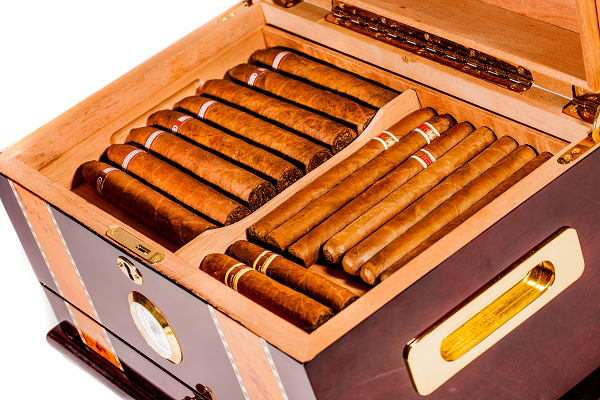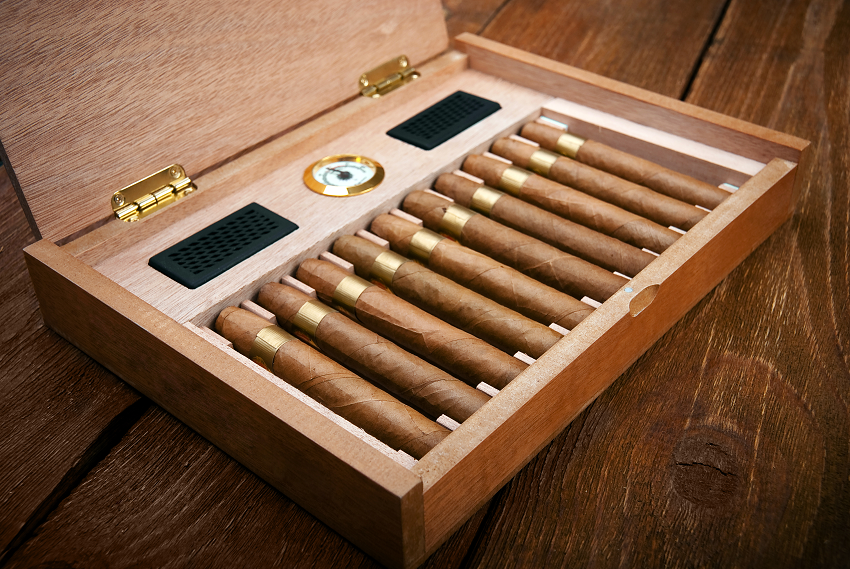- Posted by Kim Gordon
- Category:
- 0 Comments
BEHIND THE SCENES - CIGAR HUMIDORS
Cuban Cigar boxes can be as masterful as the cigar itself. We’ll meet a group of renowned artists dedicated to handmade humidors.

A humidor can be a simple box – or something more. On the outskirts of Havana, we’ll meet a group of artists that go beyond the cigar box, crafting extraordinary, hand-made humidors.
Using antique wood and an artistic vision, each piece is made by hand. With the most extravagant designs requiring hundreds of hours of work and input from team members who specialize in silver-smithing, cabinet-making, and marquetry. Past designs have been modeled after cannons, skyscrapers, and historic landmarks. Many of which have garnered interest from international buyers willing to spend thousands on the most elaborate pieces.
Why Cigars Need a Humidor
Despite the extensive drying process, cigars retain a good amount of moisture. And outside of proper storage, they’ll dry up in a few days or even a few hours – losing most of its taste, richness, and burn quality. Some of this can be restored, but just like refrozen ice cream, it’ll never be the same.
Cigars are hygroscopic, meaning they absorb moisture from the environment. And that’s where the humidor comes in. In a dark, humid, environment cigars can be kept fresh for years.
Different Kinds of Humidors
Every humidor needs to do two things: retain moisture and maintain temperature, around 70% humidity, and 70°F. Cigar aficionados consider Spanish Cedar the finest wood for this purpose, which grows naturally in Cuba and much of Latin America. Other species, such as American Cedar and Honduran Mohagony are suitable, but unmatched in quality.
Humidor size is the second consideration. For non-smokers wanting to bring a few Habaneros back, a pocket or travel humidor is perfect. They’ll fit 2-10 sticks and stow easily in your luggage. A standard desktop humidor stores 20-100, and from there it only goes up – including larger cabinets and walk-in closets capable of storing 1000s of cigars.
Picking a Humidor
If you’re getting a humidor in Cuba, look for the right balance in price. If it seems too good to be true – it probably is. Models with a hygrometer and thermometer built-in are more expensive but worth it. The proper range of humidity and temperature in a humidor is relatively small. You’ll want to remove the guesswork.
Finally, a humidor without a tight seal is like a refrigerator without a door. If you’re purchasing one on the fly, try the dollar test. Place half a bill inside, then close the lid. If the dollar slides out easily, the seal isn’t tight. Try it on every side of the humidor before buying. And for extra certainty, do the “whoosh” test. Place your ear next to the lid, then close it. You should hear a whoosh of air.
Cuban cigars deserve a Cuban humidor. And the finest humidors are a work of art – worthy of conversation over a puro cubano.














